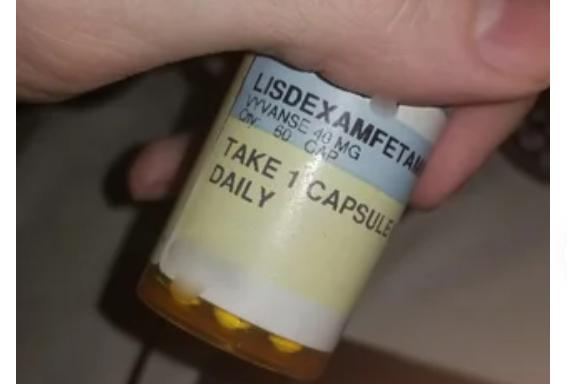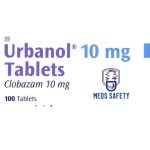Vyvanse (lisdexamfetamine): Uses Dosage, Side Effects, Addiction, Warnings

What is Vyvanse?
Vyvanse is a brand of lisdexamfetamine used as part of a treatment program to control symptoms of attention deficit hyperactivity disorder (ADHD; more difficulty focusing, controlling actions, and remaining still or quiet than other people who are the same age) in adults and children.
Vyvanse is also used to treat binge eating disorder (an eating disorder characterized by periods of uncontrolled overeating). Vyvanse is in a class of medications called central nervous system stimulants. It works by changing the amounts of certain natural substances in the brain.
How should Vyvanse be used?
Vyvanse comes as a capsule to be taken by mouth. It is usually taken once a day in the morning with or without food. Take Vyvanse at around the same time every day. Do not take Vyvanse in the late afternoon or evening because it may cause difficulty falling asleep or staying asleep. Follow the directions on your prescription label carefully, and ask your doctor or pharmacist to explain any part you do not understand. Take Vyvanse exactly as directed.
You may swallow the capsule whole, or you may open the capsule, sprinkle the entire contents into yogurt, a glass of water, or orange juice. Stir to dissolve and swallow the mixture right away. Do not store the mixture for future use, and do not divide the contents of one capsule into more than one dose.
Your doctor will probably start you on a low dose of Vyvanse and increase your dose gradually, not more often than once every week. Your doctor may decrease your dose if you experience unpleasant side effects.
Your doctor may tell you to stop taking Vyvanse from time to time to see if the medication is still needed. Follow these directions carefully.
Other uses for this medicine
Vyvanse should not be used for weight loss in people who are obese or who are overweight.
This medication may be prescribed for other uses; ask your doctor or pharmacist for more information.
What special precautions should I follow?
Before taking Vyvanse,
• tell your doctor and pharmacist if you are allergic to Vyvanse; other stimulant medications such as amphetamine (in Adderall), benzphetamine (Didrex), dextroamphetamine (in Adderall, Dexedrine, Dextrostat), methamphetamine (Desoxyn); any other medications, or any of the ingredients in Vyvanse capsules. Ask your doctor or pharmacist or check the manufacturer’s information for a list of the ingredients.
• tell your doctor if you are taking a monoamine oxidase (MAO) inhibitor such as isocarboxazid (Marplan), linezolid (Zyvox), methylene blue, phenelzine (Nardil), selegiline (Eldepryl, Emsam, Zelapar), and tranylcypromine (Parnate), or if you have stopped taking one of these medications during the past 2 weeks. Your doctor will probably tell you not to take Vyvanse until at least 14 days have passed since you last took an MAO inhibitor.
• tell your doctor and pharmacist what other prescription and nonprescription medications, vitamins, nutritional supplements, and herbal products you are taking. Be sure to mention any of the following: acetazolamide (Diamox), ascorbic acid (Vitamin C), other medications for ADHD, sodium bicarbonate (Arm and Hammer Baking Soda, Soda Mint), and sodium phosphate (OsmoPrep, Visicol). Your doctor may need to change the doses of your medications or monitor you carefully for side effects. Many other medications may also interact with Vyvanse, so be sure to tell your doctor about all the medications you are taking, even those that do not appear on this list.
• tell your doctor if anyone in your family has or has ever had an irregular heartbeat or has died suddenly. Also tell your doctor if you have recently had a heart attack and if you have or have ever had a heart defect, high blood pressure, an irregular heartbeat, hardening of the arteries, or other heart problems. Your doctor will examine you to see if your heart and blood vessels are healthy before you start taking Vyvanse and will check your heart and blood pressure regularly during your treatment with Vyvanse. Your doctor will probably tell you not to take Vyvanse if you have a heart condition or if there is a high risk that you may develop a heart condition.
• tell your doctor if you or anyone in your family has or has ever had depression, bipolar disorder (mood that changes from depressed to abnormally excited), or mania (frenzied, abnormally excited mood), motor tics (repeated uncontrollable movements), verbal tics (repetition of sounds or words that is hard to control), or Tourette’s syndrome (a condition characterized by the need to perform repeated motions or to repeat sounds or words), or has thought about or attempted suicide. Also tell your doctor if you have or have ever had Raynaud’s disease (problems with blood flow to the fingers, toes, ears, and nose), mental illness, seizures, an abnormal electroencephalogram (EEG; a test that measures electrical activity in the brain), glaucoma (increased pressure in the eye that may cause vision loss), hyperthyroidism (a condition in which there is too much thyroid hormone in the body), or kidney disease.
• tell your doctor if you are pregnant, plan to become pregnant, or are breastfeeding. If you become pregnant while taking Vyvanse, call your doctor.
• talk to your doctor about the risks and benefits of taking Vyvanse if you are 65 years of age or older. Older adults should not usually take Vyvanse because it is not as safe as other medications that can be used to treat the same condition.
• you should know that this medication may make it difficult for you to perform activities that require alertness or physical coordination. Do not drive a car or operate machinery until you know how this medication affects you.
• you should know that Vyvanse should be used as part of a total treatment program for ADHD, which may include counseling and special education. Make sure to follow all of your doctor’s and/or therapist’s instructions.
What special dietary instructions should I follow?
Unless your doctor tells you otherwise, continue your normal diet.
What should I do if I forget a dose?
Take the missed dose as soon as you remember it. However, if it is almost time for the next dose, skip the missed dose and continue your regular dosing schedule. Do not take a double dose to make up for a missed one.
What are the side effects of Vyvanse?
Vyvanse may cause side effects. Tell your doctor if any of these symptoms are severe or do not go away:
• sleepiness
• dizziness
• headache
• dry mouth
• constipation
• diarrhea
• nausea
• weight loss
Some side effects can be serious. If you experience any of these symptoms, stop taking Vyvanse and call your doctor immediately or get emergency medical treatment:
• slow or difficult speech
• weakness or numbness of an arm or leg
• seizures
• hallucinating (seeing things or hearing voices that do not exist)
• believing things that are not true
• feeling unusually suspicious of others
• mood swings
• motor or verbal tics
• hives
• rash
• swelling of the eyes, face, tongue, lips, or mouth
• blurred vision or other vision problems
• paleness or blue color of fingers or toes
• numbness, pain, or sensitivity to temperature in the fingers or toes
• unexplained wounds appearing on fingers or toes
Vyvanse may cause sudden death in children and teenagers, especially children and teenagers who have heart defects or serious heart problems. This medication also may cause sudden death, heart attack, or stroke in adults, especially adults who have heart defects or serious heart problems. Call your doctor right away if you or your child has any signs of heart problems while taking this medication including chest pain, shortness of breath, or fainting. Talk to your doctor about the risks of taking this medication.
Vyvanse may slow children’s growth or weight gain. Your child’s doctor will watch his or her growth carefully. Talk to your child’s doctor if you have concerns about your child’s growth or weight gain while he or she is taking this medication. Talk to your child’s doctor about the risks of giving Vyvanse to your child.
Vyvanse may cause other side effects. Call your doctor if you have any unusual.
In case of emergency/overdose
In case of overdose, call the poison control helpline at 1-800-222-1222. Information is also available online at https://www.poisonhelp.org/help. If the victim has collapsed, had a seizure, has trouble breathing, or can’t be awakened, immediately call emergency services at 911.
Symptoms of overdose may include the following:
• restlessness
• confusion
• aggressive behavior
• feelings of panic
• hallucination (seeing things or hearing voices that do not exist)
• fast breathing
• uncontrollable shaking of a part of the body
• fever
• muscle weakness or aching
• tiredness or weakness
• depression
• fast or irregular heartbeat
• nausea
• vomiting
• diarrhea
• stomach cramps
• seizures
• coma (loss of consciousness for a period of time)
Vyvanse Safety Information
Vyvanse can be habit-forming. Do not take a larger dose, take it more often, take it for a longer time, or take it in a different way than prescribed by your doctor. If you take too much Vyvanse, you may feel a need to continue to take large amounts of the medication, and you may experience symptoms such as unusual changes in your behavior. You or your caregiver should tell your doctor immediately if you experience any of the following symptoms: fast, pounding, or irregular heartbeat; sweating; dilated pupils; abnormally excited mood; irritability; restlessness; difficulty falling sleeping or staying asleep; hostility; aggression; anxiety; loss of appetite; loss of coordination; uncontrollable movement of a part of the body; flushed skin; vomiting; stomach pain; or thinking about harming or killing oneself or others or planning or trying to do so. Overusing Vyvanse may also cause sudden death or serious heart problems, such as heart attack or stroke.
Tell your doctor if you or anyone in your family drinks or has ever drunk large amounts of alcohol uses or has ever used street drugs, or has overused prescription medications. Your doctor will probably not prescribe Vyvanse for you.
Do not suddenly stop taking Vyvanse without talking to your doctor, especially if you have overused the medication. Your doctor will probably decrease your dose gradually and monitor you carefully during this time. You may develop severe depression and extreme tiredness if you suddenly stop taking Vyvanse after overusing it.
Do not sell, give away, or let anyone else take your medication. Selling or giving away Vyvanse may harm others and is against the law. Store Vyvanse in a safe place so that no one else can take it accidentally or on purpose. Keep track of how many capsules are left so you will know if any are missing.





